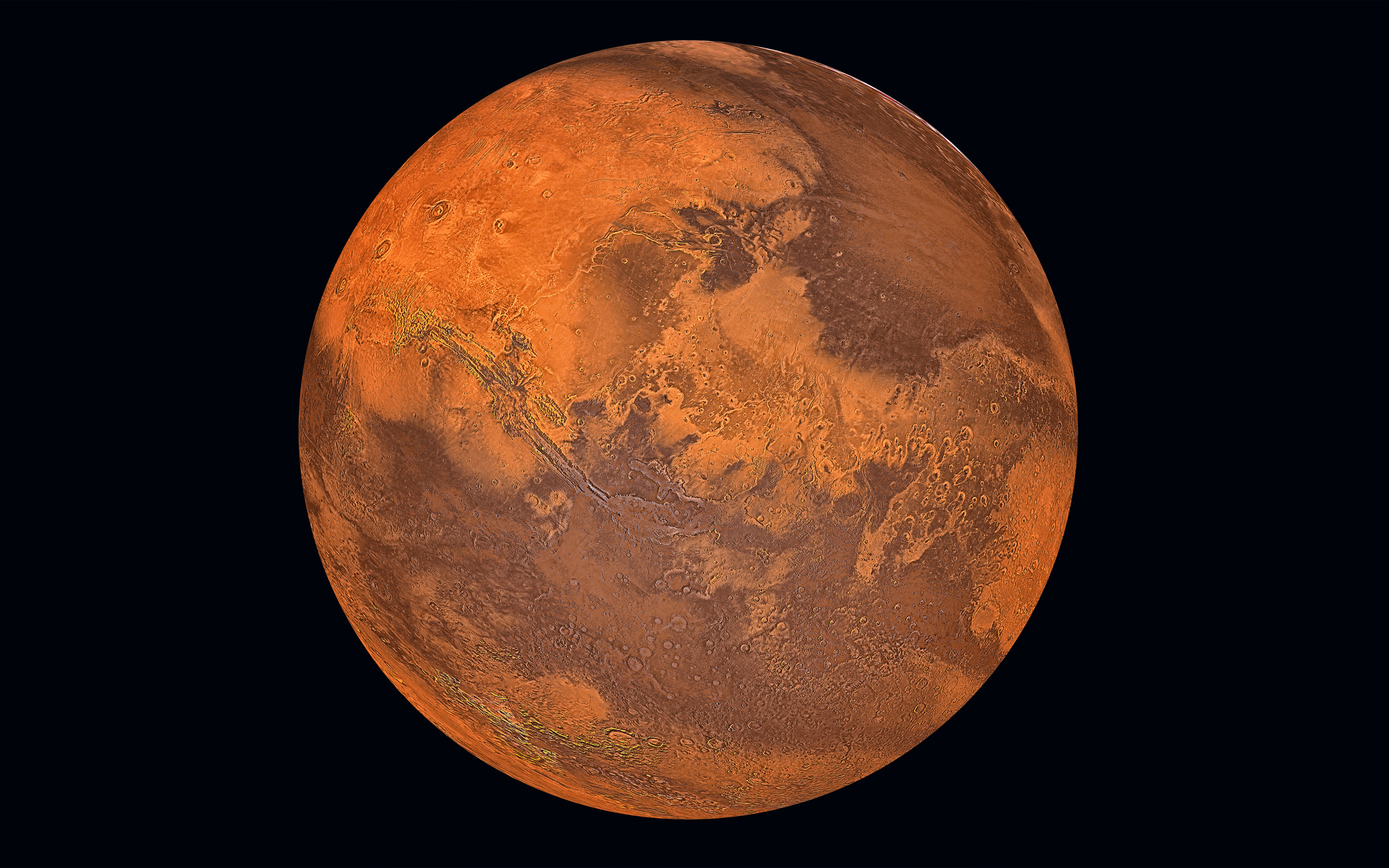New evidence suggests presence of underground lake on Mars


A free daily email with the biggest news stories of the day – and the best features from TheWeek.com
You are now subscribed
Your newsletter sign-up was successful
There may be a lake buried beneath the ice on the south pole of Mars, a new study has suggested.
Scientists found hints the lake existed back in 2018, but new evidence further supports their hypothesis. The lake could be as large as 18 miles across, and likely remains liquid due to geothermal heating, Time reports. The study's findings were published in the journal Nature Astronomy.
Water has been found on Mars before, but largely in the form of ice — so a liquid water source is a major revelation. The discovery was made by analyzing 2018 findings from the European Space Agency's Mars Express spacecraft radar device, reports Time. In 2018, radar soundings conducted on an area of Mars known as Ultimi Scopuli suggested a large area of water under the ice. But these results were not enough to confirm the presence of a lake, as a number of other factors could have contributed to a false reading.
The Week
Escape your echo chamber. Get the facts behind the news, plus analysis from multiple perspectives.

Sign up for The Week's Free Newsletters
From our morning news briefing to a weekly Good News Newsletter, get the best of The Week delivered directly to your inbox.
From our morning news briefing to a weekly Good News Newsletter, get the best of The Week delivered directly to your inbox.
However, by way of computer modeling, scientists have now come to the conclusion that a lake may indeed be present. The study ran simulations of various scenarios of depth and pressure, offering "independent support for the presence of basal water beneath Ultimi Scopuli," as stated in Nature Astronomy.
University of Cambridge's Neil Arnold, who lead the study, said in a statement, "It's exciting to use these techniques to find out things about planets other than our own."
A free daily email with the biggest news stories of the day – and the best features from TheWeek.com
Devika Rao has worked as a staff writer at The Week since 2022, covering science, the environment, climate and business. She previously worked as a policy associate for a nonprofit organization advocating for environmental action from a business perspective.
